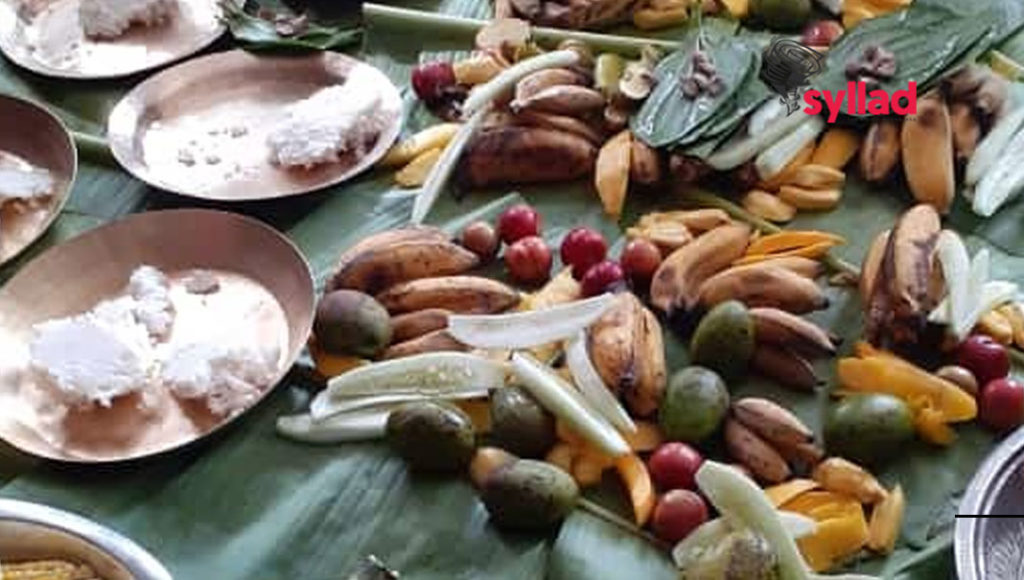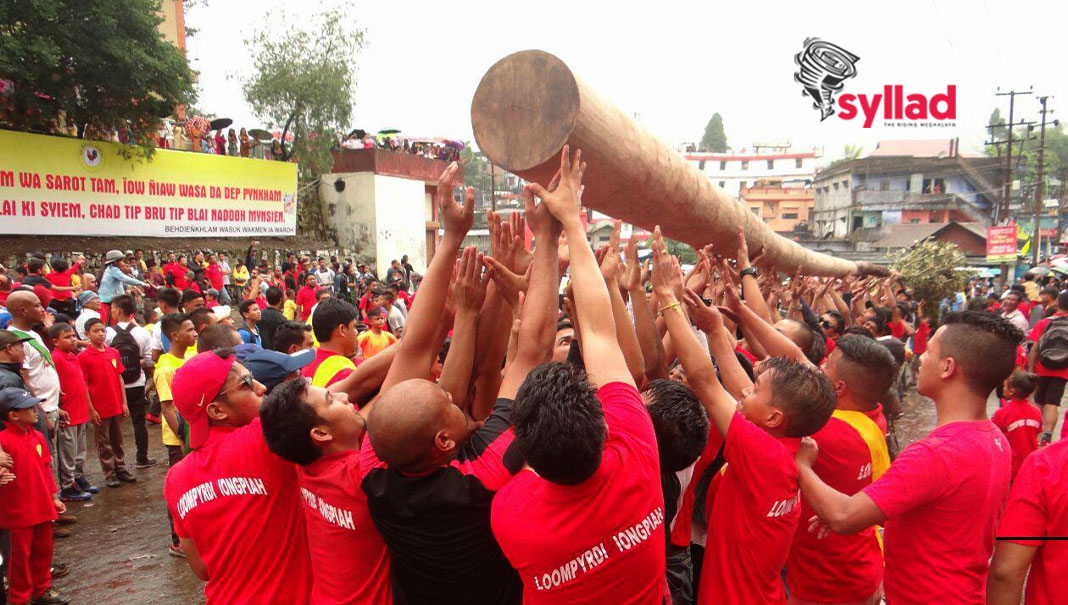Behdieñkhlam 2020: Celebrating the triumph of the Spirit

The Behdieñkhlam of raid Jowai this year will be different from the festival celebrated in the past, and hopefully similar Behdieñkhlam will never ever happen again in the future. Due to the corona virus pandemic, only the rituals and religious facets of the festival will be performed this year. The organisers are making sure that the rituals due to God, deities and divinities are completed without compromising the standard operation procedures of the government.
Behdieñkhlam is the most important festival of the Pnar of Jaintia Hills. It is being celebrated throughout the year by 6 (six) raids namely ka raid Chyrmang, ka raid Jowai, ka raid Tuber, ka raid Ïalong, ka raid Mukhla and ka raid Muthlong. Though the Jowai Behdieñkhlam is much more popular, it is the Behdieñkhlam of the raid Tuber which is the biggest Behdieñkhlam in the state. The festival may be celebrated by different raids in the two districts of Meghalaya but the essence of the festival is the same. The origin of the word ‘behdieñkhlam’ derived from three words in a Pnar parlance, ‘beh’ literarily means to chase or to rid away, ‘dieñ’ means wood or log and ‘khlam’ means plague, epidemic or pestilence.
The festival may not be like people used to celebrate in the past, but this year’s Behdieñkhlam is no less important. In fact it represents the real value of the festival. It is when only the fundamental aspects of the festival are being observed and by selected few. This year’s Behdieñkhlam is celebrating the true meanings of the festival without pomp and gaiety around it.
The celebration this year will be restricted to performing the oblation, rites and sacrifices connect with the festival. Some of the religious rites in connection with Behdieñkhlam festival are ‘ka suit ka choor’, ‘ka kñia khang’, ‘ka kñia pyrthat’, ‘kdoh sarang’, ‘ka kñia syiem Aitnar’ and ‘pynleit sarang, ka kyntiñ khnong, ka choh thyndai ’ and others. To maintain the sanctity of the rites, those involved in the performance of every ritual which started with the tradition of ‘dih-soo-pen’, have to observe ‘ïait thiah’ meaning avoiding physical contact with one’s spouses throughout the festival. Spiritual cleansing has to be maintained in conducting the rituals, and the completion of all rites and rituals is how the celebration is an important spiritual act for the believers.
The spiritual nature of the festival is also because it pervades in the main livelihood activity of the people which is agriculture farming. The annual festival has a very profound connection with the agrarian culture of the people. One particular ceremony which has connection with the agrarian culture of the community is ‘ka thoh langdoh.’ It is forbidden to plough or till the field before the ceremony is completed. This is followed by ‘ka chat thoh’, which prohibits sowing or planting certain kind of vegetables without completing the ceremony. The final public activity of the festival which has agrarian connection is ‘ka datlawakor’ the goal of which is to pray for a good harvest this year.
Behdieñkhlam is also about celebrating the spirit of oneness of the community. It is about strengthening the bond in the community which starts from ‘ka ïung ka sem, individual household, ka kur ka jait, kinship in the clan and ‘ki kha ki man’ respecting both sides of the families. Then it permeates to ‘i maïa dong maïa chnong’ love for one’s community to ‘ka bhalang uwa boon wa lang’ common good or wellbeing of all. Behdieñkhlam is the time when one sees not only the camaraderie amongst the residence of the dongs or localities but the oneness of the people. It is reliving the spirit of the four divine sisters ka Wet, ka Bon, ka Teiñ, wa ka Doh and celebrating the bond within the community which started with the founding clan ‘ki sookpoh khatar wyrnai’. The spirit then permeate to the other main clans ‘ki San syngkong’, ‘ki Le kyllung’, ‘ki Ïawchibidi’ and ‘ ki phra kur ki phra kmai’ the eight primary clans. It is therefore celebrating respect and unity, the spirit on which raid Jowai was found.
The festival is also about celebrating the spirit of the ancestors by performing with due diligence all the necessary oblation. On the first day of the festival different ‘kur’ or clan in their different ‘ïung blai’ perform the offering of ‘ka siang ka pha’ or ‘ka siang ka phur’ which is an offerings in honour of the departed souls. Hence Behdieñkhlam is not about the livings only, but is also about showing reverence to the spirit of the ancestors. Another ceremonies conducted at the residence of some kur which started from the house of the priestess ‘i ïung langdoh’ is ‘ka bam tyngkong’ or eating at the residence of some kurs. Bamtynkong is also about showing respect to the people who establish raid Jowai. The festival is also about sharing the joy with the spirit of ‘ki sangia ki saret’ the departed souls which pervades the realms of both worlds.

In one of his press briefing the President of Seinraij Jowai, OR Shallam said that the Behdieñkhlam this year will be celebrated in spirit. This I think sums up the unusual celebration this year. Behdieñkhlam this year is not only about the materialistic joy but it is about the joy of the spirit. It is celebrating the festival in one’s heart and in one’s soul rather than in the body.
Behdieñkhlam this year is about bringing the heart of the festival to the fore. It is the time when the aesthetic aspect of the festival gives way to the core value of the festival which is the celebration of the spirit. The pomp and gaiety maybe lacking in the festival this year but the spirit is alive in the entire festival. Even in the absent of all that which symbolizes festivity, the essence of the festival which is in the spirit is alive throughout the festival.
Though the celebration of the festival this year will be different but this too shall pass and next year’s Behdieñkhlam will be celebrated again as usual. Time comes and goes but the spirit of Behdieñkhlam will remain. No doubt 2020 Behdieñkhlam will be remembered as the most extraordinary festival of all time and of course for all the wrong reasons. Let us hope that 2021 Behdieñkhlam will be celebrated once again in body and in spirit by all the people of raid Jowai. This will be the victory of the true spirit of Behdieñkhlam, the triumph of good over evil.



Leave a Reply